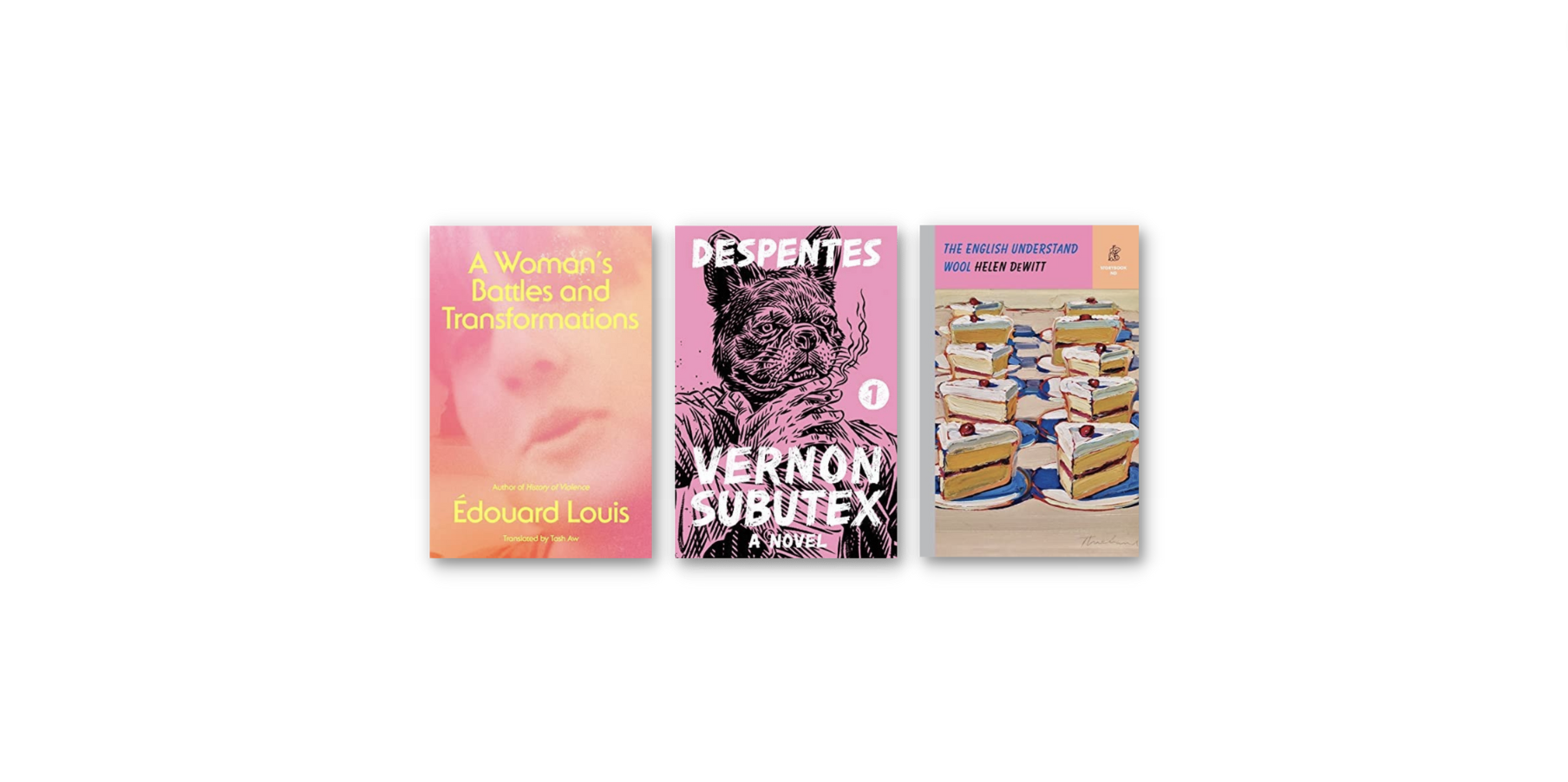I started the year on a high from reading the totally fantastic Paris Stories by Mavis Gallant and José Saramago’s The Year of the Death of Ricardo Reis with a book club that convenes over Twitter DM. I’ve never actually met anyone from the club—I think I infiltrated a group of friends who are mostly alumni of Ithaca University, many from its economics department. They’re very smart, very funny, and just all around amazing people to read alongside. (They’ll probably make fun of me for saying all that.) It’s this type of yearslong semi-acquaintance that makes me think the internet might be good after all. Next up is Berlin Alexanderplatz—can’t wait.
JJJJJerome Ellis’s The Clearing came out in late 2021, but I’ve kept it in circulation all year. It’s a work of poetry accompanied by an album, both of which use Ellis’s stutter to explore language, Blackness, and time in a truly exciting way. Reading the book and listening to the album simultaneously was a transcendent experience. We in the stuttering community are lucky to have Ellis around to sound out the artistic potential of stuttered speech.
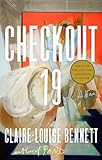

 Early in 2022 I read Claire-Louis Bennett’s Checkout 19, a novel about reading as a creative practice. The main character works at a grocery store in a small British town and thinks endlessly about books she’s read or even just heard about, to the point that it sometimes seems like a catalog of titles — which is fine by me, because I love lists. Around then I listened to an audiobook of The Book of Eels by Patrik Svensson, a natural history of the very mysterious animal that spawns unseen in the Sargasso Sea and changes forms several times in its life. (My boyfriend, Joe, read it just before me and seemed so shocked at every other page that I had to try it myself. Eels are really weird.) I also listened to Richard Seymour’s The Twittering Machine, which might be my favorite entry in the “delete your accounts” canon (and I’ve read ’em all). But I did not delete my accounts.
Early in 2022 I read Claire-Louis Bennett’s Checkout 19, a novel about reading as a creative practice. The main character works at a grocery store in a small British town and thinks endlessly about books she’s read or even just heard about, to the point that it sometimes seems like a catalog of titles — which is fine by me, because I love lists. Around then I listened to an audiobook of The Book of Eels by Patrik Svensson, a natural history of the very mysterious animal that spawns unseen in the Sargasso Sea and changes forms several times in its life. (My boyfriend, Joe, read it just before me and seemed so shocked at every other page that I had to try it myself. Eels are really weird.) I also listened to Richard Seymour’s The Twittering Machine, which might be my favorite entry in the “delete your accounts” canon (and I’ve read ’em all). But I did not delete my accounts.

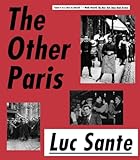

 Before a trip to France, I read Down and Out in Paris and London by George Orwell and The Other Paris by Lucy Sante. Down and Out is one of those books where the narrator is constantly running out of money, then becoming miraculously flush again; Orwell was just playing at being poor, but his accounts of hunger and destitution are almost cartoonishly vivid. The descriptions of his job washing dishes at a fine-dining restaurant in Paris are especially great. And The Other Paris is every bit as riveting as Sante’s classic Low Life. Once I was there, I read Virginie Despentes’s Vernon Subutex One—another great “running out of money” book set in early-aughts Paris—feeling happily uncomfortable at how nasty it was.
Before a trip to France, I read Down and Out in Paris and London by George Orwell and The Other Paris by Lucy Sante. Down and Out is one of those books where the narrator is constantly running out of money, then becoming miraculously flush again; Orwell was just playing at being poor, but his accounts of hunger and destitution are almost cartoonishly vivid. The descriptions of his job washing dishes at a fine-dining restaurant in Paris are especially great. And The Other Paris is every bit as riveting as Sante’s classic Low Life. Once I was there, I read Virginie Despentes’s Vernon Subutex One—another great “running out of money” book set in early-aughts Paris—feeling happily uncomfortable at how nasty it was.
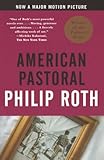
 I’ll read any book about stuttering, even if it’s by a non-stutterer. Actually, those books sometimes fascinate me even more. Stuttering is a real thing, but it seems to have this metaphorical dimension that writers love (see also: American Pastoral by Philip Roth). Recently I borrowed a library copy of Yukio Mishima’s The Temple of the Golden Pavilion, about a young stutterer who becomes obsessed with a Buddhist temple, Kinkaku-ji, in Kyoto, eventually burning it to the ground (the novel is based on a true story; a novice monk set fire to the temple in 1950). When he runs into a beautiful neighbor, a girl his age, the stutterer is unable to speak: “She was, I suppose, looking at that silly little dark hole, that ill-formed little hole which was soiled by the nest of a small animal of the fields, and which now wriggled meaninglessly in the early dawn light.” There are so many brutal descriptions of stuttering in this book. Part of me wants to classify this kind of thing—the idea of a stutterer-criminal, someone so tormented and isolated by their disability that they resort to antisocial violence—as an easily condemned source of stigma, but there’s some deep truth in what Mishima is doing. In a way, it’s ennobling to be associated with such a profoundly pained villain. Disability can come with a lot of darkness and injustice.
I’ll read any book about stuttering, even if it’s by a non-stutterer. Actually, those books sometimes fascinate me even more. Stuttering is a real thing, but it seems to have this metaphorical dimension that writers love (see also: American Pastoral by Philip Roth). Recently I borrowed a library copy of Yukio Mishima’s The Temple of the Golden Pavilion, about a young stutterer who becomes obsessed with a Buddhist temple, Kinkaku-ji, in Kyoto, eventually burning it to the ground (the novel is based on a true story; a novice monk set fire to the temple in 1950). When he runs into a beautiful neighbor, a girl his age, the stutterer is unable to speak: “She was, I suppose, looking at that silly little dark hole, that ill-formed little hole which was soiled by the nest of a small animal of the fields, and which now wriggled meaninglessly in the early dawn light.” There are so many brutal descriptions of stuttering in this book. Part of me wants to classify this kind of thing—the idea of a stutterer-criminal, someone so tormented and isolated by their disability that they resort to antisocial violence—as an easily condemned source of stigma, but there’s some deep truth in what Mishima is doing. In a way, it’s ennobling to be associated with such a profoundly pained villain. Disability can come with a lot of darkness and injustice.




 I read a lot of new books for work, where I contribute blurbs for the “To Do” list at the back of New York magazine. I loved The English Understand Wool by Helen DeWitt, a novella expressing a hilarious level of hostility toward the New York publishing industry. The poet Mary-Alice Daniel’s memoir A Coastline Is an Immeasurable Thing, about her family’s immigration from Nigeria to the U.K. and then the U.S., was a joy to read. Thrust by Lidia Yuknavich had talking animals and wild time travels through American history. The graphic novel Men I Trust, by Tommi Parrish, is a story about neediness and loneliness that reads a little like a thriller. I thought Édouard Louis’s A Woman’s Battles and Transformations was amazingly tender, and I really liked Simon Leser’s Bookforum review of it. Weirdly, I find myself confusing it with My Phantoms by Gwendoline Riley, another book about a child-mother relationship in which the mother finds herself living alone after a period of domestic unrest. But Riley’s novel is all venom, while Louis describes his mother as a heroine.
I read a lot of new books for work, where I contribute blurbs for the “To Do” list at the back of New York magazine. I loved The English Understand Wool by Helen DeWitt, a novella expressing a hilarious level of hostility toward the New York publishing industry. The poet Mary-Alice Daniel’s memoir A Coastline Is an Immeasurable Thing, about her family’s immigration from Nigeria to the U.K. and then the U.S., was a joy to read. Thrust by Lidia Yuknavich had talking animals and wild time travels through American history. The graphic novel Men I Trust, by Tommi Parrish, is a story about neediness and loneliness that reads a little like a thriller. I thought Édouard Louis’s A Woman’s Battles and Transformations was amazingly tender, and I really liked Simon Leser’s Bookforum review of it. Weirdly, I find myself confusing it with My Phantoms by Gwendoline Riley, another book about a child-mother relationship in which the mother finds herself living alone after a period of domestic unrest. But Riley’s novel is all venom, while Louis describes his mother as a heroine.
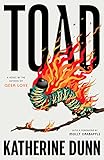

 Then there was Toad, by Katherine Dunn of Geek Love fame, which was rejected by publishers during her lifetime and sat in a desk drawer for years and years until its release this year. It’s about a group of friends—if you can call them that; they all sort of despise each other—in 1960s Portland, where they’re embarking on a confused countercultural life complete with off-grid farming and an ill-advised pregnancy. Read it if you want a comic novel that’ll also depress the hell out of you. And gross you out completely. Another gross-out book: Alex Pheby’s Mordew, the most astounding class-conflict fantasy novel I didn’t realize I needed, which is full of squirming mud and blood. I am waiting in anticipation for its sequel, coming to the U.S. next fall.
Then there was Toad, by Katherine Dunn of Geek Love fame, which was rejected by publishers during her lifetime and sat in a desk drawer for years and years until its release this year. It’s about a group of friends—if you can call them that; they all sort of despise each other—in 1960s Portland, where they’re embarking on a confused countercultural life complete with off-grid farming and an ill-advised pregnancy. Read it if you want a comic novel that’ll also depress the hell out of you. And gross you out completely. Another gross-out book: Alex Pheby’s Mordew, the most astounding class-conflict fantasy novel I didn’t realize I needed, which is full of squirming mud and blood. I am waiting in anticipation for its sequel, coming to the U.S. next fall.


 In September, I went to Iowa for a wedding and bought Joshua Cohen’s Moving Kings; the passage about a concussion-inducing car crash will be with me forever. Fall continued apace and I read Margo Jefferson’s Constructing a Nervous System, associative and rigorous, on a train ride to Philadelphia. I read John Hendrickson’s incredible upcoming book about his stutter, Life on Delay, and I cannot wait to see it reach the world next year. He’s willing to parse all the contradictions of stuttering in a way that I think will advance the conversation around speech disability.
In September, I went to Iowa for a wedding and bought Joshua Cohen’s Moving Kings; the passage about a concussion-inducing car crash will be with me forever. Fall continued apace and I read Margo Jefferson’s Constructing a Nervous System, associative and rigorous, on a train ride to Philadelphia. I read John Hendrickson’s incredible upcoming book about his stutter, Life on Delay, and I cannot wait to see it reach the world next year. He’s willing to parse all the contradictions of stuttering in a way that I think will advance the conversation around speech disability.
 Meanwhile, I was copyediting at New York Magazine, where the print-production cycle restarts with a jolt every two weeks. I feel lucky that I get to read for work—if you’d call copyediting reading (it’s slowed down, circumspect, a little mathematical, and wonderful in its own way). My job is especially fun when we publish book stories, like these profiles of Gwendoline Riley and Octavia Butler. Elizabeth Weil’s feature story about climate change also spun my head around last month. It sent me to The Nutmeg’s Curse by Amitav Ghosh, which I’m still reading, about the centuries-long link between colonialism, climate change, and our alienation from the natural world, eels and all.
Meanwhile, I was copyediting at New York Magazine, where the print-production cycle restarts with a jolt every two weeks. I feel lucky that I get to read for work—if you’d call copyediting reading (it’s slowed down, circumspect, a little mathematical, and wonderful in its own way). My job is especially fun when we publish book stories, like these profiles of Gwendoline Riley and Octavia Butler. Elizabeth Weil’s feature story about climate change also spun my head around last month. It sent me to The Nutmeg’s Curse by Amitav Ghosh, which I’m still reading, about the centuries-long link between colonialism, climate change, and our alienation from the natural world, eels and all.
